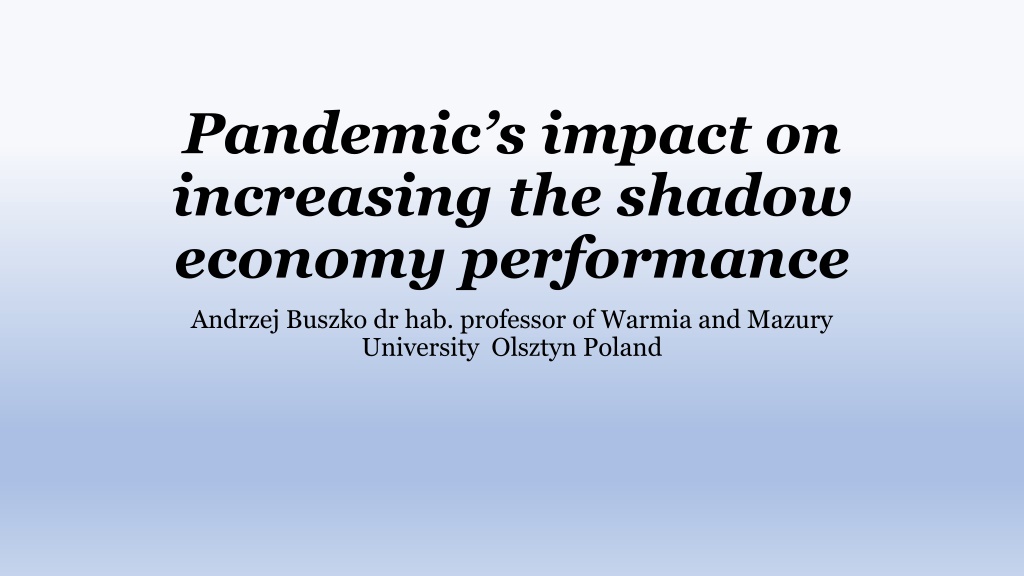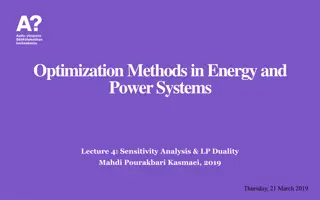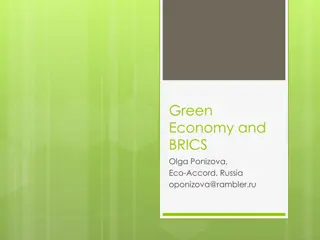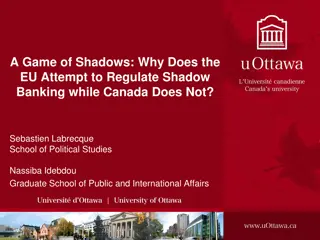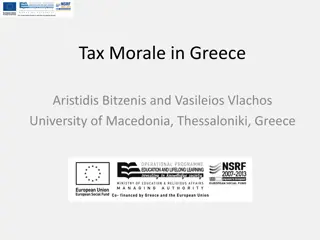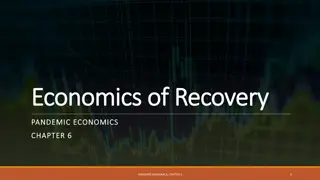The Impact of Pandemics on the Shadow Economy Performance
Pandemics have a significant impact on the shadow economy, influencing the legal economy in various ways. The shadow economy serves as a buffer for high unemployment rates and can contribute to budget revenues through legal spending. Studies suggest that a growing shadow economy may reflect dissatisfaction with government policies and regulations. The roots of the shadow economy can be linked to factors such as high taxation, complex legal systems, corruption, organized crime, cultural influences, and institutional quality. Understanding how pandemics affect the shadow economy is crucial for economic analysis and policy-making.
Download Presentation

Please find below an Image/Link to download the presentation.
The content on the website is provided AS IS for your information and personal use only. It may not be sold, licensed, or shared on other websites without obtaining consent from the author. Download presentation by click this link. If you encounter any issues during the download, it is possible that the publisher has removed the file from their server.
E N D
Presentation Transcript
Pandemics impact on increasing the shadow economy performance Andrzej Buszko dr hab. professor of Warmia and Mazury University Olsztyn Poland
The shadow economy is regarded to be a distinctiveness of the modern economy. This is due to the main two facts. First shadow economy exists in any country and just varies from the level of it and the category. Secondly the shadow economy affects the legal activity.
Generally, the shadow economy affects legal economy in a depraved way. Such an opinion is widely spread in spite of that there are some academics, researches, even politics state that shadow economy sometimes supports lawful motion
The surplus of labor force is absorbed by shadow economy. The shadow economy is just the pillow for higher unemployment rate. Secondly people from shadow economy spend at least some money in legal way, so the support budget revenue for example by VAT tax. Schneider based upon his research states that 66% of earnings in the shadow economy is quickly spent in formal sector
According to the Fraser Institute studies, a growing shadow economy is the sign that the democracy works bad, citizens condemning governments policies through an economic behavior, protesting regulations, and additionally influenced the usual consumption spending, and mainly those for long term purpose (Florea, Schiop, 2008) to the law and
The roots of the shadow economy are mainly the same. They are connected with: - The high level of taxation (Krsti , Schneider, 2015), - The complicated and contradicted law system (Ainsworth, 2011), - The high level of corruption(Choi, Thum, 2003), - The level of organized crime ( Dabla-Norris, Feltenstein, 2003), - The culture determinates (Buszko, 2017, Alm, Torgler, 2006), - The quality of institutional structure (Laruelle, 2008).
What about a pandemic? Does the pandemic affect the shadow economy? What are the effects of this? Whether are they negative or positive ones?
Pandemics impact on GDP in selected countries 2020 Country % GDP -2,2 -5,6 -3,6 -4,6 -5,6 -6,9 -3,4 Lithuania Latvia Poland Estonia Germany Czechia Sweden
From an industry view, the most severe ongoing impact is on services which continue to struggle at -7.3 per cent versus a year ago. This is driven by distribution hotels & restaurants (-12.3%) and transport, storage and communications (-10.4%) in particular. Business services and finance have performed least badly (-4.8%), though finance (-2.9%) and real estate (-1.5%) have offset a more severe decline in professional scientific administrative and support (-9.2%).
The level of shadow economy in selected countries 2020 (%GDP) Country Level of shadow economy Change compared to 2019 Lithuania Latvia Poland Estonia Germany Czechia Sweden 24% 23% 24% 24% 17% 23% 15% 4% 5% 6% 4% 4% 7% 3%
The effects of shadow economy based upon pandemic s impact Polish case - the decrease of tax revenues / by 8% - inflation growth / by 3% / CPI - unemployment growth / by 4% - linking social capital / Michael Woolcock i Fabio Sabatini approach/ - decrease by 7% ( pilot research construction industry sample of 76 companies/
